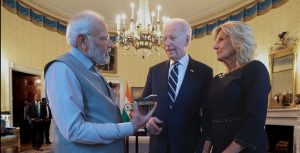Hindi, despite being widely spoken in India, cannot be imposed on a non-Hindi speaking person, simply because the language isn’t the “national language in the Constitution”, singer Sonu Nigam weighed in on the eyeball-grabbing Twitter debate, that took place last week, between Bollywood star Ajay Devgn and Kannada actor Sudeep Sanjeev.
The Padma Shree winner said, “As per my knowledge, Hindi is not written as a national language in the Constitution of India. I have consulted experts regarding this also. Hindi is the most spoken language in the country, I understand that. Having said that are we aware that Tamil is world’s oldest language? There is a debate between Sanskrit and Tamil. People say Tamil is the oldest language in the entire world”, in an interview with Cinema Beast.
Also Read | ‘Hindi is the national language’: Kangana Ranaut supports Ajay Devgn
Nigam further noted that the controversy over Hindi would only lead to unwanted problems in the nation, which the singer believes already has its share of issues.
“Do we have fewer problems in the country that we need a new one. We are creating disharmony in the country by imposing a language on others, saying you are a Tamilian, you should speak Hindi. Why would they? People should have the right to decide the language they want to speak”, he further said.
Nigam, who has sung in over 32 languages, concluded, “Chodo yaar (Leave all this). Let them chill. A Punjabi should speak Punjabi, Tamil should speak Tamil. If they are comfortable in English, they will speak in that language”, adding, “Even in our courts, the judgments are in English. The flight attendants also prefer the language”.
Hindi imposition and the threat to pluralism
In India, where there is a push from the current Bharatiya Janata Party-formed central government to make Hindi a national language, one must take cognizance of the fact that only 44% of the population speaks Hindi, including dialects like Bhojpuri.
The BJP’s move to impose Hindi as a language has been perceived to be a threat to one’s identity, by many, and fearing this erasure, there has been an extreme opposite reaction. This is seen in fringe groups like Bangla Pokkho – a West Bengal outfit championing the superiority of Bengali as a language.
Also Read | Ajay Devgn defends his Vimal endorsements, says its a ‘personal choice’
Elsewhere in the south, Karnataka witnessed anti-Hindu protests reach a crescendo in Tamil Nadu, with the celebration of Hindi Diwas on September 14, drawing sharp flak from the opposition Janata Dal-Secular, and groups like Karnataka Rakshana Vedike (KRV).
The debate on Hindi imposition is not new in India and has existed since the formation of the Constitution. This current war of words on Twitter aside, in 2021, the Madras High Court instructed the Union government that it is duty-bound to have English communications in states that have not adopted Hindi as their official language.
India’s pluralism comes from multiple ethos and identities, stemming from the many cultures that make up this diverse subcontinent. The BJP’s push in unifying the nation is, unfortunately, leading to situations where some sections feel they have to sacrifice their identities to fit the homogenized vision the party has for India.






